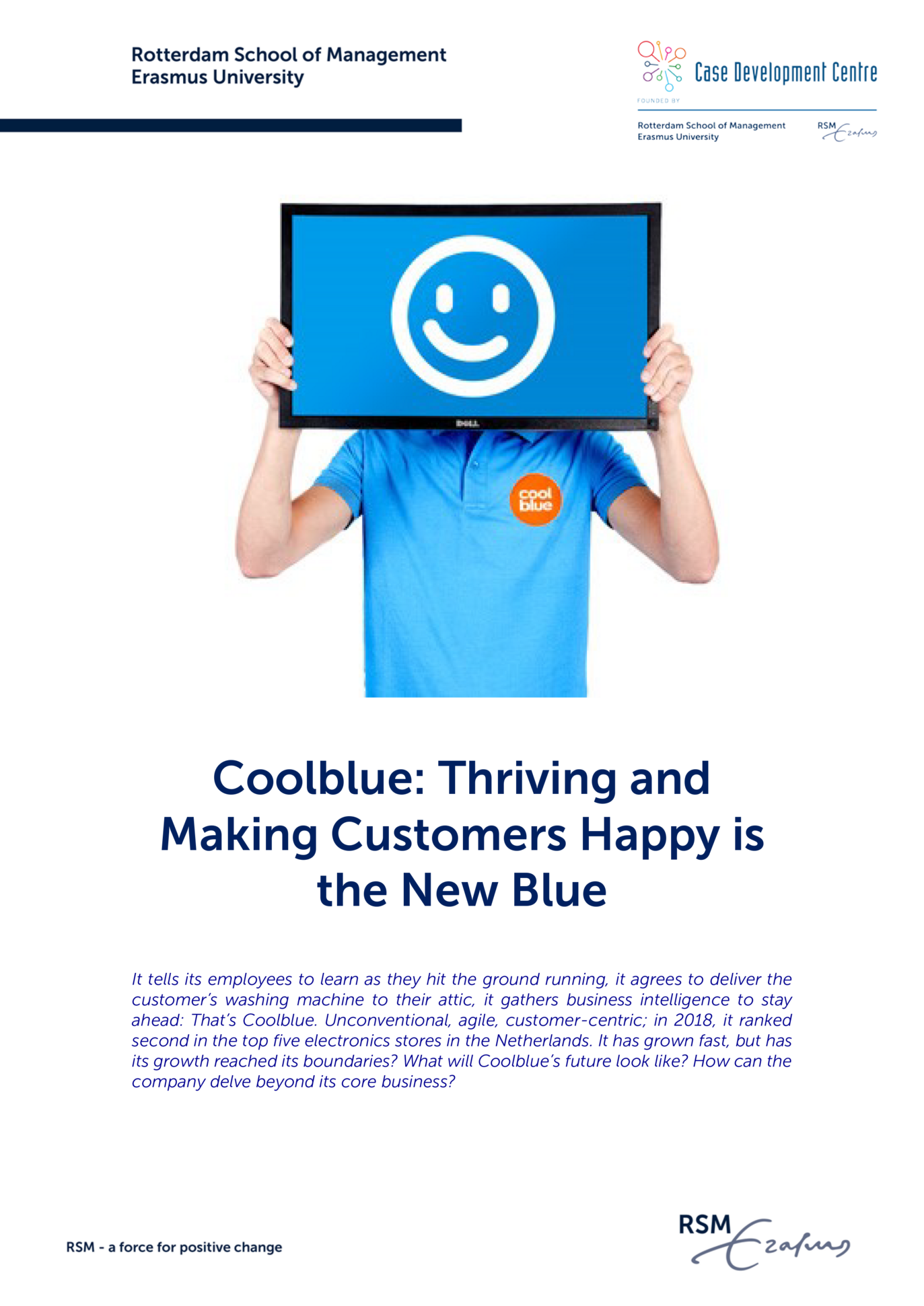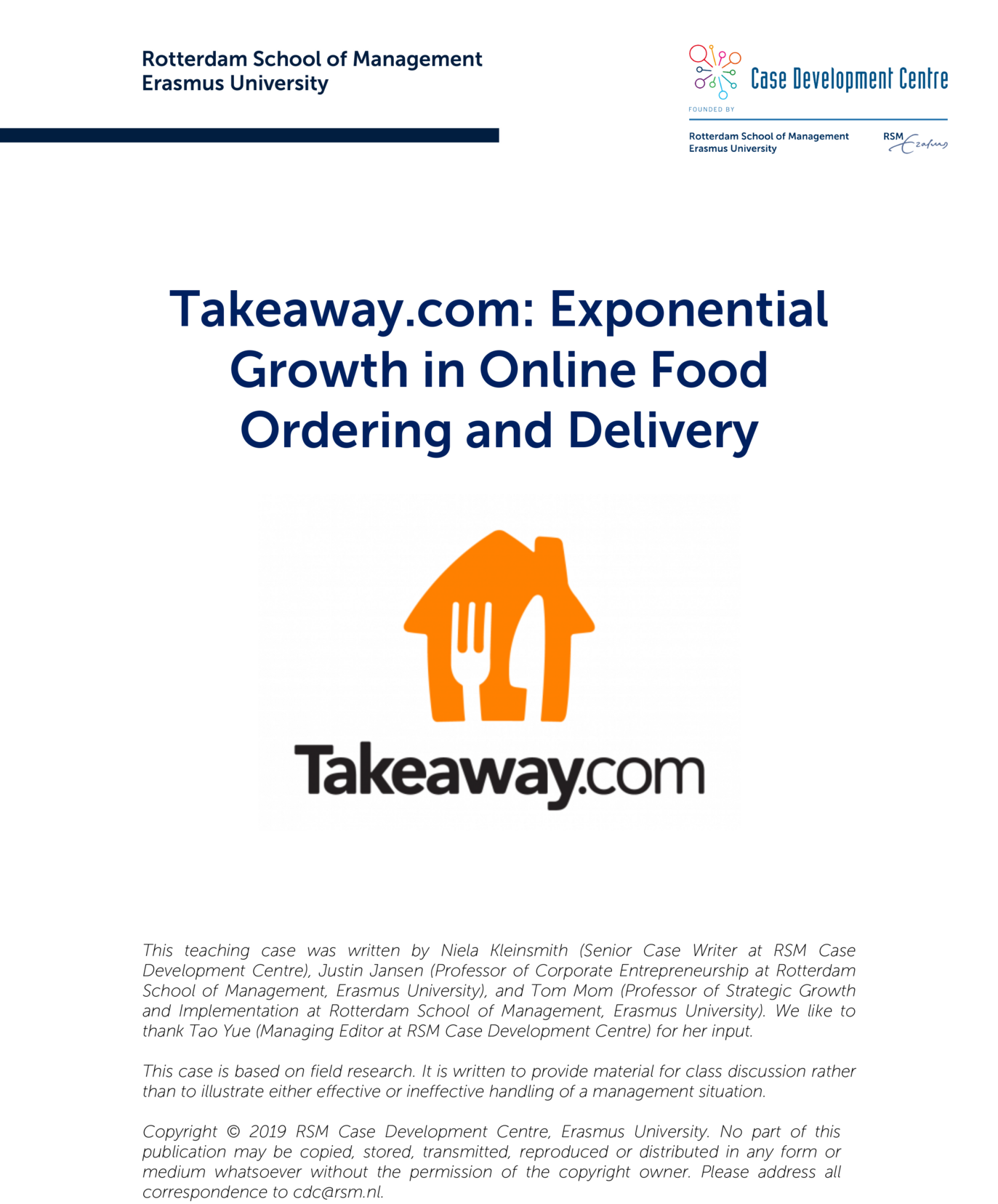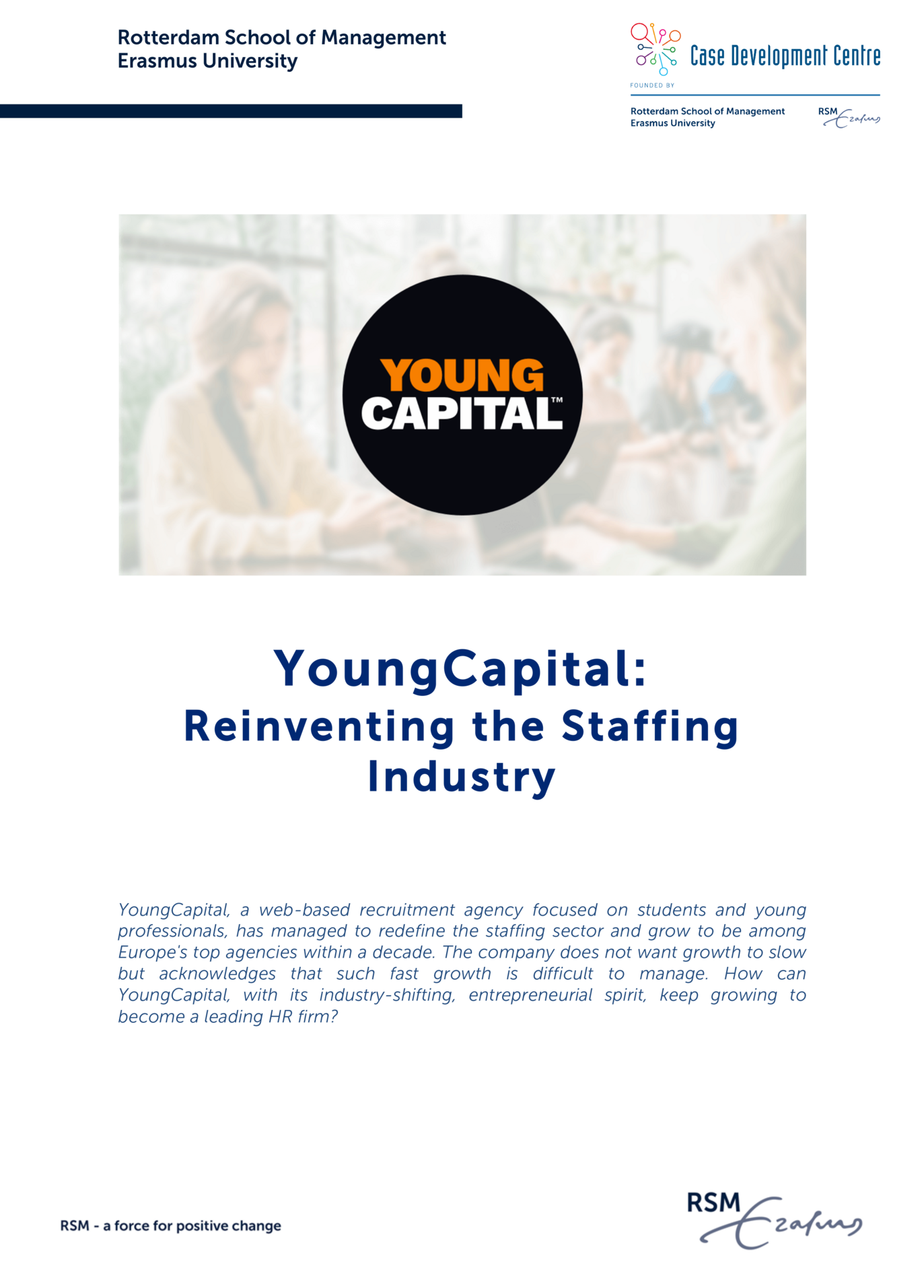

Reading time: 5 minutes
By RSM Case Development Centre
Research from RSM shows that a healthy entrepreneurship ecosystem depends on a large number of young companies that can scale up and sustain growth. Despite economic prosperity, however, the climate for fast-growing companies in the Netherlands has deteriorated. A number of fundamental indicators are not merely on orange alert, but on red alert. In 2019 it was signalled that the increase in the number of fast-growing companies more than halved, for example, and fewer start-ups are becoming scale-ups. In 2022 the study showed continued slowing, with fewer high-growth firms and a sharp fall in the number of start-ups. If the government is to make policy that promotes fast growth in companies, it needs to better understand what caused the downturn and what fast-growing companies need in order to prosper. RSM’s research on scale-ups is indispensable here.
Professor Justin Jansen and Professor Tom Mom from RSM in collaboration with the Erasmus Centre for Entrepreneurship (ECE), have devoted their research to strategic scale-ups since 2015.
They began their research by getting an overview of Dutch scale-ups in order to understand how to best improve the entrepreneurship ecosystem. The research team collected extensive data on Dutch scale-ups, using it to create the ScaleUp Dashboard to assess how many scale-ups are in the Netherlands, their ages, sizes, and revenues, and their impact on job creation and the national economy. Collaboration with Statistics Netherlands (CBS) since 2018 has made the Dashboard even more comprehensive.
Based on the ScaleUp Dashboard, the team has published an annual report of the top 250 scale-ups since 2017. This list distinguishes itself from others by its focus on growth in both employment and turnover, instead of only on turnover. It is an overview of fast-growing companies that have at least 10 full-time equivalent employees (FTE) or at least € 5 million in turnover at the start of the measurement period, and have achieved an average growth of at least 20 per cent in FTEs or revenue for three consecutive years.
The research finds that although many fast-growing companies achieve the first growth spurt between their fifth and eighth year of establishment, almost two-thirds slow down thereafter. Despite a good starting position and a scalable revenue model, many fast-growing companies struggle with internal challenges like attracting new talent, obtaining follow-up financing, and handling explosive complexity as their organisation expands. On the other hand, companies that continue to grow structurally, such as Takeaway, Coolblue, YoungCapital and SecureLink, deal with the typical ‘growing pains’ in a similar way: simplifying things by identifying core values, delegating activities, and applying critical performance indicators that enable employees to add value to attract existing and new customers.
These insights inform several academic papers. In 2023, Jansen and Mom were guest editors of a special issue in the Journal of Management Studies that aimed to provide a forum for scholarship that builds on the constraints, challenges, processes, opportunities and other salient elements of scale-ups to advance managerial theory and evidence in these areas.

RSM research on scale-ups has significant impact in several areas: it provides valuable content for education on strategic entrepreneurship; it inspires companies to grow faster and helps them do so; and it invites policy change towards nourishing a stronger entrepreneurship ecosystem.
In education, Jansen and Mom work with the RSM Case Development Centre to turn research data on the best-performing companies into living case studies. Unlike traditional cases that examine an isolated event, these cases follow the companies for years and discuss the challenges they face in different phases of their growth. Thanks to the researchers’ deep involvement with the companies, the cases can be updated whenever necessary to include new events and new insights. They are used in RSM’s bachelor, master and executive education programmes, ECE's executive education programmes and by the companies themselves in their internal programmes. The cases are also published through The Case Centre (an international, independent case house), accessible to organisations worldwide.
In addition to classroom education, Jansen and Mom worked with Euronext and other partners in developing ELITE, a European ecosystem to support SMEs and private companies by connecting them to skills, network, and capital to drive their sustainable growth. Moreover, with other leading European business schools, they founded the European Scaleup Institute, a platform of academic experts and practitioners in Europe for scale-ups, high-growth firms, governmental organisations and policymakers to encourage more scaling up.
They also plan to develop a serious gaming product that captures the typical challenges from start-up through scale-up and on to sustainable growth, so that many more companies and business students can benefit from their research.
Education and training are not the only areas where this scale-up research has an impact: public engagement is another. Every year, RSM collaborates with ECE and the public-private organisation NLgroeit (Netherlands Grows) to organise a large public event to recognise the best of the top 250 scale-ups in the country; Queen Máxima has regularly presented this award to the winning company’s CEO. Past winners have included Rituals, Takeaway and Picnic, and the most recent winner was Media.Monks for the second time.
The significance of the ‘Golden Grower’ award from NLgroeit goes beyond stimulating entrepreneurship in private firms. The winning companies are located around the Netherlands rather than concentrated in Amsterdam, Rotterdam and The Hague. This gives a signal to the government as well as business that entrepreneurship is not only possible but also thrives outside of the Randstad (the Netherlands megalopolis) and that policy support can help stimulate economic growth in all regions of the country.
Jansen and his fellow faculty members in the department of Strategic Management and Entrepreneurship have in the past advised the Dutch Committee of Entrepreneurship, which comprises Queen Máxima, the CEO of TomTom, and the Ministry of Economic Affairs and Climate (EZK) among others. One of their most recent insights is that the Dutch scale-up climate is deteriorating and that the government needs to take more innovative policy measures to encourage fast-growing companies. To help the government come up with more targeted interventions, Jansen and Mom continue working on generating a more thorough understanding of the Dutch scale-up climate through research. Along with all societal stakeholders, they aim to strengthen the foundation of the entrepreneurship ecosystem in the Netherlands and make the Dutch economy flourish in the long term.


